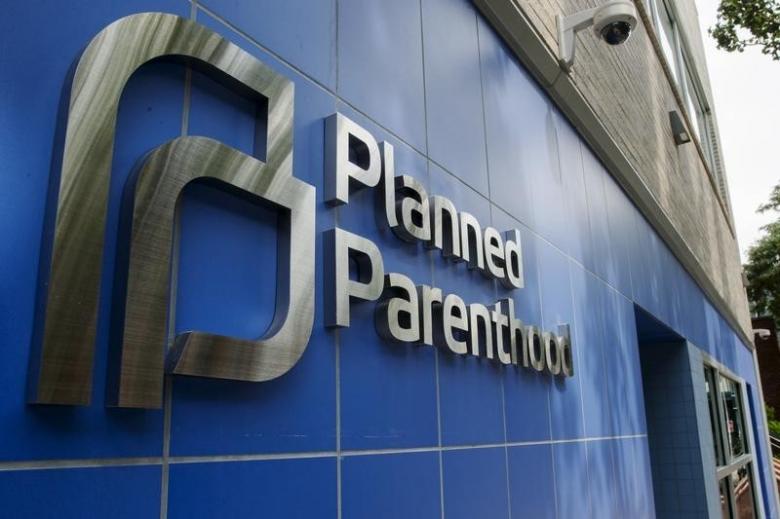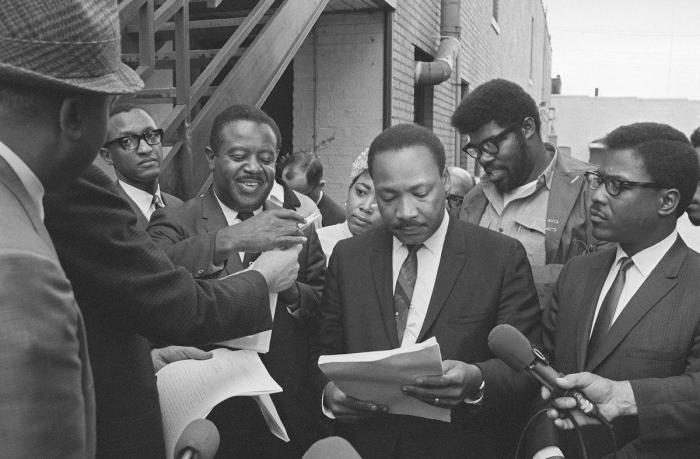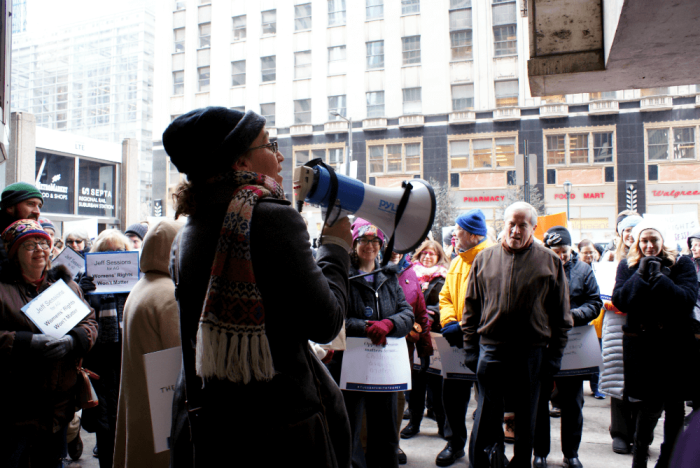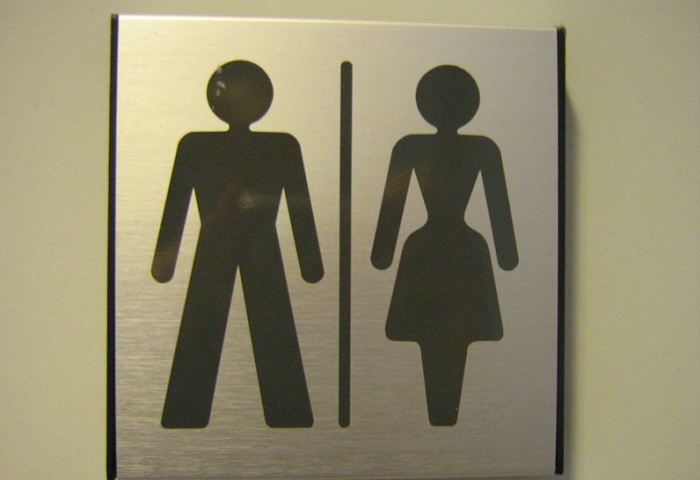More than 200 rallies around the country are planned for Saturday with a singular mission: Defunding Planned Parenthood.
Organized by #ProtestPP, a coalition of anti-abortion groups that want to reallocate Planned Parenthood’s funding toward health centers that don’t perform abortions, these protestscome at a time when federal and state governments seek to restrict access to abortions. According to Rita Russo, an anti-abortion advocate in Boston leading a protest there this weekend, the various types of care Planned Parenthood provides pale in comparison to its abortion services. RELATED: How to get the Planned Parenthood x NYFW pin “It’s very low quality in terms of services provided. They are all about abortions; they are not about women’s health,” Russo said, adding that Planned Parenthood’s sexual education in schools is dangerous because it increases sexual activity among students. According to the nonprofit, its most accessed services in 2014 were STD/STI tests for both men and women; reversible contraceptives for women; pregnancy tests; and emergency contraceptive kits, commonly known as Plan B. Abortion procedures accounted for just shy of 324,000 of the more than 9.4 million services administered that year.
Anti-abortion proponents say the numbers are misleading, citing a 2013 Slate article that calls out Planned Parenthood for saying abortions only make up 3 percent of all services provided.
To those who want to defund the program, Planned Parenthood is “unbundling” its services. That is, if a woman seeks abortion services from her local clinic, but also receives a pregnancy test, and STD test and birth control pills, that visit counts as four separate services. To the critics, it’s just one service: An abortion.
But because most of Planned Parenthood’s federal funding comes through medicaid reimbursements, that money wouldn’t be feasibly reallocated to other health clinics.
RELATED: Iowa moves to cut Medicaid funding for Planned Parenthood
“The term ‘defunding’ Planned Parenthood is a misnomer,” Erica Sackin, director of Political Communications for Planned Parenthood said. “There is no blank check that Planned Parenthood gets from the federal government. Instead, the legislation would in fact bar the millions of people who rely on Medicaid or other federal programs for health care from coming to Planned Parenthood for basic health care – cancer screenings, birth control, and well-woman exams.”
“‘Defunding’ Planned Parenthood would be devastating, and leave millions of people without health care,” Sackin said.”
The impact of defunding Planned Parenthood was reflected in a recent article published by the American Congress of Obstetricians and Gynecologists and National Partnership for Women and Families, which found 390,000 women would lose access to essential care, and up to 650,000 would face reduced access to preventive healthcare, exacerbated by a workforce shortage in OBGYN and primary care physicians.
Rerouting funding to the community health centers, as Russo and other #DefundPP organizers suggest, would fail, as Planned Parenthood’s centers often help minimize gaps in primary and reproductive health services in rural and medically underserved communities.
Fifty-four percent of Planned Parenthood’s health centers are located in such areas.
Aaron Gannon, who is organizing a #DefundPP protest in Northeast Philadelphia, said he would like to see a day when abortions are no longer a normalized practice, eliminating the need for Planned Parenthoods.
Likening abortion to slavery, Gannon said it would take time to shift public opinion.
RELATED: The future of Roe v. Wade and abortion rights in America
When asked if he would be O.K. with Planned Parenthood continuing to receive federal dollars – which legally cannot cover the costs of abortion per the Hyde Amendment – if they ceased abortion services, Gannon said he would like to see the 650 Planned Parenthood clinics around the country “expand their services to be more holistic.”
“It’s not that the goal is to make it so there’s no access and availability,” the social worker continued, “but the goal is that change of heart and have people understand so they will think of abortion as unthinkable.”
In the Keystone State, abortions only make up about 5 percent of Planned Parenthood’s services, according to the Women’s Law Project. And yet, the future of the surgical procedure faces a shaky future in the state.
Presently, abortions are only permitted in Pennsylvania up to 24 weeks, unless the woman’s life or health is endangered. Senate Bill 3, which passed through the Pennsylvania General Assembly Wednesday, would restrict that period to 20 weeks, citing studies that allege fetuses can begin to feel pain at that time.
The bill will also make illegal a method of abortion called “dilation and evacuation,” which is considered one of the safest methods for second trimester abortions. Doctors administering it would also be penalized.
Passed without a public hearing, Senate Bill 3 now heads to the house, where an identical piece of legislature passed in 2016. Planned Parenthood described it as “the most restrictive abortion law in the country.”
Dr. Lisa Perriera, a physician with Jefferson University Hospitals who administers abortions, said attempts to block women’s access to the procedure create dangerous situations for the mother.
RELATED: Pence fires up anti-abortion activists in Washington
“From the beginning of time, women have been seeking abortions; from the beginning of time, women have found themselves to be pregnant and not in a place to parent,” Perriera told Metro, adding that when there are few options for safe abortions, women will seek unsafe measures that can result in infection, internal bleeding, removal of the uterus or death.
For other anti-abortion activists, like Anna Fata, a 26-year-old New York City resident, the solution doesn’t lie in just defunding Planned Parenthood, but in solving systemic social problems that lead women to choosing abortion.
“What I think is important are the reasons a girl would feel pressured to make that choice,” Fata said. “We disempower women when we tell them…you can’t finish school, you can’t do this…and we tell them their only option is abortion.”
“Women are so strong and brave, and we can do anything,” Fata continued. “There are difficult situations for women, but howe we dare tell a woman she can’t do something because she has a child.”
Fata is part of a group of millennials in the city that represents a move away from the depiction of anti-abortion movement of being middle-aged and Republican. Fata, president of the Pro-Life Movement, is 26 years old and of Middle Eastern descent.
In some New York City communities, the abortion rate is nearly 60 percent of the birth rate. Disproportionately, more black mothers are having abortions than babies, at 55 percent.
To Fata, that’s indicative of “flaws in the system,” and favors stronger programs that help families obtain food and housing than funneling tax dollars toward Planned Parenthood.
“Some people may only be pro-life because they’re Republican. I’m not a Republican,” Fata said. “I am truly pro-life in every aspect of the word. I want us to be able to help people who are impoverished, or vulnerable.”



















